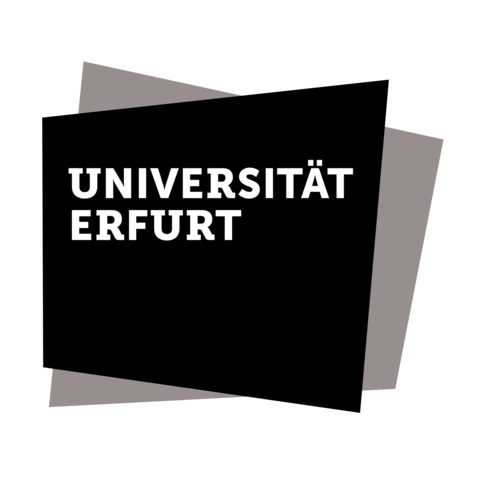Artificial intelligence
The use of artificial intelligence (AI) in university teaching offers enormous potential and at the same time poses considerable challenges. In the eTeach network, these developments are of great importance for the qualification of teachers and the exchange with experts in Thuringia and throughout Germany. Against this background, we bring together expertise, bundle information and design our own offers for teachers and interested parties. This includes courses, but also networking events and practical offers such as the Prompting Station.
Positions and offers on the topic
Technical
How does artificial intelligence work in relation to my teaching and university teaching in general? What technical information is relevant for me and where can I find the relevant knowledge, classifications and assessments? How can I keep up with the rapid technical developments that are currently taking place?
Didactic-methodical
Which didactic approaches have already been tested at my university or are considered useful? What new (creative) competence-oriented approaches and possibilities are there for my teaching? Which formats and qualification measures are offered for my needs? How do I deal with developments in the field of AI in a didactically and methodologically appropriate way in the context of examination scenarios?
Ethical and ecological
What individual, social and societal adjustments and limits are apparent in relation to my teaching? What are the consequences for a resource-conserving, sustainable and mindful approach to new media technologies? How do I learn about questions and answers regarding the changing interaction between humans and machines? How does the eTeach Network Thuringia position itself in this ethical and moral context and what advisory and informative role do the network's employees play?
Legal
What legal framework conditions apply to the use of AI at my university and how or where do I find out about them? Which established practices and framework conditions relating to the use of digital tools and technologies can be adapted for the new scenarios? What new descriptions and safeguards are there for Thuringian universities? Where are these explanations and positionings communicated and categorized?
Competence-related
How can the media-related skills of students be described, shaped and promoted in relation to dealing with AI? How are requirements and questions relating to "human performance" and degree profiles (creativity, social skills, teamwork, critical and reflective handling of information) changing? How can I deal with this as a teacher and where can I get support?
Networking and communication
How are positioning, offers and networking activities on AI communicated in the eTeach network Thuringia? Which target groups are addressed via which channels? What is the character of the communication? (informative, reflective, etc.)
If you have any further questions, please contact Dorothea Warneck and Martina Gerhardt at dorothea.warneck[at]hfm-weimar.de or martina.gerhardt[at]dhge.de
- for new learning and teaching formats,
- for the support of learning processes,
- for the competence gain of students and
- for the individualization of studies.
The legal challenges in media-enhanced teaching, learning and assessment have multiplied in the course of AI developments. We would first like to describe the basic institutional framework for the use of AI tools. This is because this definition of concrete regulations, which results from answering the legal questions, is particularly important for examinations (final theses, term papers) in order to prevent any attempts at cheating through the unauthorized use of AI writing tools. Furthermore, for reasons of fairness and equal opportunities, it is necessary to issue appropriate guidelines for students. In addition, examples of good practice from German universities can be named.
→ Here you will find explanations on authorship in the context of AI-generated content, declarations of independence and university-specific regulations for dealing with attempts to deceive.
→ Here to download the entire document (PDF).
For legal questions about AI tools in university teaching, please contact Gianni Buršić: Gianni.Bursic[at]eah-jena.de
Since the publication of ChatGPT by OpenAI at the end of November 2022 at the latest, almost all areas of daily life - and therefore the entire education sector in particular - have been confronted with an unprecedented number of questions, challenges and opportunities in terms of both breadth and depth. It is no coincidence that cross-references such as a certain "steam engine moment" are used in this context. Alongside the challenge of grasping the possible breadth and depth of the impact of AI tools on the respective field (in our case the education sector, and more specifically the field of higher education), AI tools are an extremely dynamic, almost unmanageable field. Against this background, it is important to have a basic understanding that ChatGPT represents a very present, but only a section of a rapidly growing field. The entire field of AI tools is currently growing strongly and steadily, with several dozen new tools of various types and qualities emerging every day. Accordingly, there are various ways of structuring and categorizing these tools for university teaching. For example, with our Prompting station a loanable, free and practical creative tool that can be used to test applications of artificial intelligence.
→ Here you will find an overview of AI tools, their implementation in teaching and further links.
→ Here to download the entire document (PDF).
If you have any questions about tools and licenses, please contact Svea Benett: svea.benett[at]uni-weimar.de
Generative AI bots are increasingly finding their way into universities and teaching. A new field of experimentation and learning for everyone: teachers and students. Dealing with the new technology and its didactically meaningful and profitable use in the context of teaching, studies and examinations initially means additional work. However, it also offers the opportunity to learn from and with each other and to exchange and share both good and bad experiences.
The eTeach Network Thuringia would like to support this cooperative learning by promoting and supporting the exchange between teachers at Thuringian universities. Share with us and your colleagues your experiences with the use of AI in your teaching as a didactic element. This can be an initial demonstration of, for example, the functionalities of ChatGPT through to tasks for dealing with AI, entire teaching concepts or pilot projects.
We prepare your ideas, concepts and experiences and share them here on the website. We also promote networking and exchange with lecturers from other Thuringian universities in various formats.
→ Here you will soon find an overview of Thuringian experts and examples of best practice.
Your contact person for Thuringian AI experts is Dorothea Warneck: dorothea.warneck[at]hfm-weimar.de
The use of artificial intelligence (AI) in university teaching offers enormous potential and at the same time poses considerable challenges. In the eTeach network, these developments are of great importance for the qualification of teachers and the exchange with experts in Thuringia and throughout Germany. Against this background, we can offer the following formats:
- Qualification courses: In the eTeach course program, the topic of artificial intelligence is examined from a legal and didactic perspective, among others. Find out more →
- Talks@eTeach: The hybrid, low-threshold exchange format offers space for impulses from teaching practice, exchange of experiences and networking on the topic of media-enhanced teaching, learning and testing. Find out more →
- Events and functions: Thematic workshops and the annual conferences as well as other networking events of the eTeach network provide thematic impulses and offer space for dialog and exchange. Find out more →
- AI working group: Individual contact and specialist units of the eTeach network and the management are involved in the AI working group. The aim is to systematically monitor developments in artificial intelligence in teaching and to derive positions, offers and recommendations.
If you have any questions about our exchange and qualification programs, please contact Zaryab Chaudhry at zaryab.chaudhry@uni-weimar.de
Current projects in the topic
Guidelines & handouts
Ideas and goals
- Outline concept and process description for creation
an AI guideline - Recommendations for action/guidelines for teachers and
Students on eTeach website
Current status:
- runs
Participants in and around the network

Dorothea Warneck
Contact person
Contact point at the Franz Liszt University of Music Weimar

Michael Schinköthe
Contact person
eTeach contact point at Erfurt University of Applied Sciences

Martina Gerhardt
Contact person
Contact point at the Gera-Eisenach Cooperative State University

Gianni Bursic
Contact person
Project member of the INSPIRE team at the Ernst Abbe University of Applied Sciences Jena
Current results
Downloads
- Download 1
- Download 2
- Download 3
Links
- Link 1
- Link 2
- Link 3
Collection of materials
- Collection 1
- Collection 2
- Collection 3
Qualification concept
Ideas and goals
- Development and implementation of qualification modules in the field of artificial intelligence
- Consideration of flexible formats (self-study rooms)
- Integration of offers from external institutions and provision of own offers by the eTeach network Thuringia
Participants in and around the network

Zaryab Chaudry
Contact person
Media technology center in the eTeach network

Dorothea Warneck
Contact person
Contact point at the Franz Liszt University of Music Weimar

Martina Gerhardt
Contact person
Contact point at the Gera-Eisenach Cooperative State University

Christina Otto
Contact person
Contact point at the Friedrich Schiller University Jena

Cathleen Schöne
Contact person
Specialist unit for qualification and networking in the eTeach network

Gianni Bursic
Contact person
Project member of the INSPIRE team at the Ernst Abbe University of Applied Sciences Jena
Current status:
- runs
Current results
Downloads
Links
- Link 1
- Link 2
- Link 3
Collection of materials
- Collection 1
- Collection 2
- Collection 3
Good practice & networking
Ideas and goals
Teachers at Thuringian universities who have already gained experience in teaching about and with AI have already been interviewed. This will create a pool of examples for the best practice platform as well as contacts for the Talks@eTeach and other events of the eTeach Network Thuringia.
Participants in and around the network

Dorothea Warneck
Contact person
Franz Liszt University of Music Weimar

Dr. Nicole Baron
Contact person
Bauhaus University Weimar
Current status:
- runs
Current results
Downloads
- Download 1
- Download 2
- Download 3
Links
- Link 1
- Link 2
- Link 3
Collection of materials
- Collection 1
- Collection 2
- Collection 3
